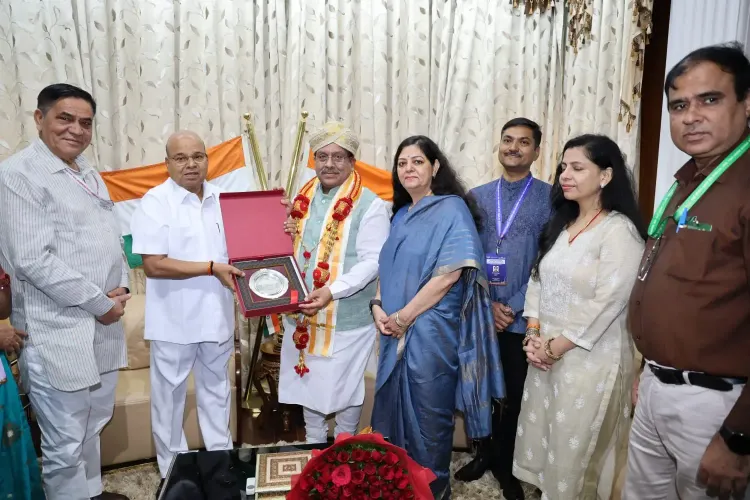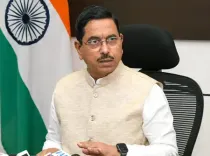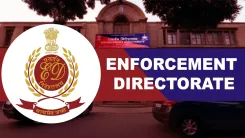What Updates Did Speaker Vijender Gupta Share with Karnataka Governor?

Synopsis
Key Takeaways
- Digital Transformation: The transition towards a fully digital legislature under NeVA.
- National Legislative Index: A new benchmark for assessing legislative performance.
- Heritage Preservation: Plans for the Assembly as a heritage complex.
- Democratic Commitment: A focus on upholding democratic traditions.
- Collaboration: Strengthening partnerships between states for progress.
New Delhi, Sep 15 (NationPress) Delhi Speaker Vijender Gupta met with Karnataka Governor Thaawar Chand Gehlot on Monday at Raj Bhavan in Bengaluru, providing insights on the digital evolution and various transparency initiatives undertaken by the Legislative Assembly.
During their discussion, Speaker Gupta informed Gehlot about the All India Speaker’s Conference 2025, hosted in the Delhi Legislative Assembly to commemorate the 100th anniversary of the first Indian elected Speaker, Vithalbhai Patel.
He also emphasized the Assembly’s shift to a fully digital legislature under the National e-Vidhan Application (NeVA) framework, which aims to create a paperless environment to enhance transparency, efficiency, and governance in legislation.
Gupta presented a visionary project to develop the Delhi Assembly as a heritage complex, preserving its architectural and historical significance while integrating modern facilities for legislators and visitors.
He stressed that these efforts highlight the Assembly’s dedication to innovation, heritage conservation, and service to the residents of Delhi.
Present at the meeting was Delhi Assembly’s Deputy Speaker Mohan Singh Bisht, underlining the collaborative spirit of the visit to Karnataka Raj Bhavan.
Speaker Gupta’s conversation with Gehlot underscored their mutual commitment to upholding democratic traditions and working together for the nation’s advancement.
Earlier, Speaker Gupta addressed the 11th Commonwealth Parliamentary Association (CPA) India Region Conference in Bengaluru, focusing on the theme ‘Dialogue and Discussion in Legislative Institutions: The Foundation of Public Trust, the Medium of Fulfilling People’s Aspirations’.
He remarked, “By strengthening democracy through transparent evaluation, the National Legislative Index (NLI) will serve as a benchmark for state legislatures.”
Gupta highlighted the NLI’s role as a groundbreaking framework to assess legislative performance within India’s federal structure.
He asserted that the NLI offers a transparent, data-driven tool aimed at strengthening democratic governance.
“It measures both productivity and quality of legislative institutions, tracks progress, and identifies gaps in democratic performance,” he stated.
By facilitating comparisons among state legislatures, the Index promotes healthy competition, encourages best practices, and drives reforms that enhance the responsiveness, accountability, and effectiveness of law-making bodies.
Gupta pointed out that while India boasts strong indices for health, education, and economic governance at the state level, there has yet to be a systematic method to evaluate the functioning and effectiveness of state legislatures—core institutions of democracy. “The NLI seeks to bridge this significant gap,” he concluded.





